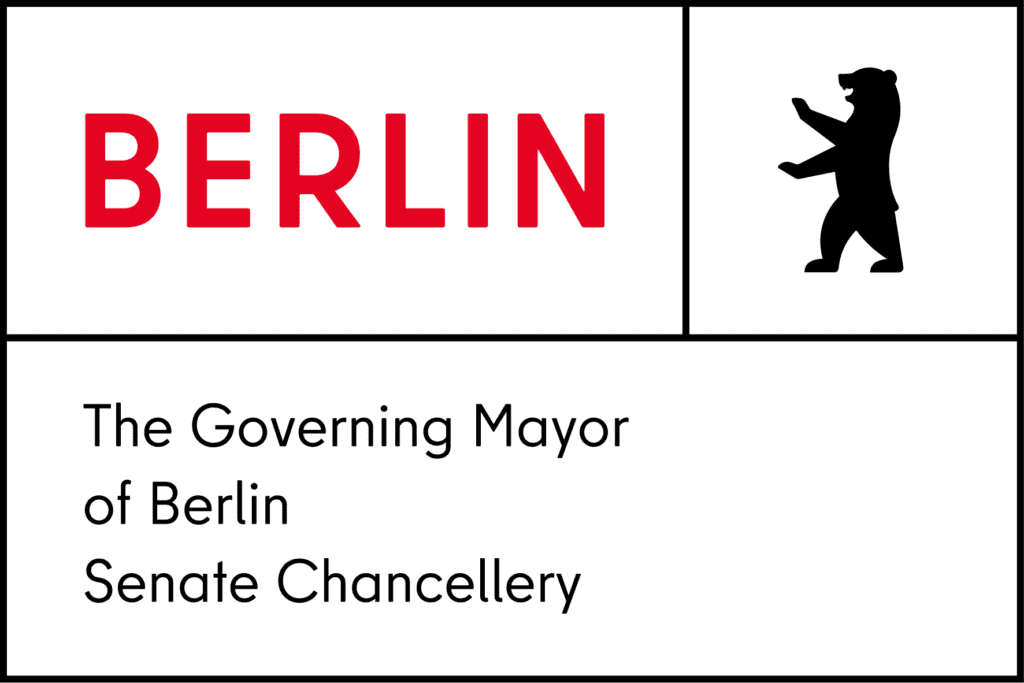In September 2023, the Berlin Senate adopted the smart city strategy Gemeinsam Digital: Berlin (GD:B for short). On behalf of the Senate Chancellery, CityLAB is part of the GD:B support team, which accompanies measures during implementation and provides methodological support. In this article, we share insights into the underlying process.
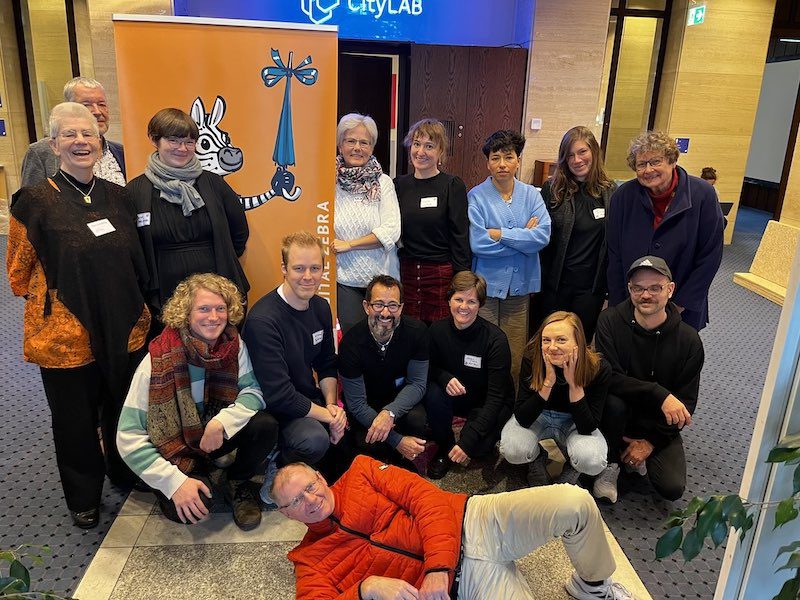
With the GD:B strategy,the stakeholders involved on behalf of the Berlin Senate Chancellery have set themselves the goal of doing a lot of things differently from other smart city and digital strategies that went before – especially in terms of implementation. More than anything else, a learning strategy seeks to provide comprehensive process assistance – and this is precisely where CityLAB supports the individual action teams. As part of the support team, we offer workshops on the various Implementation phases at the phase transitions, along with methodological training and resources in the area of service design and prototyping.

Five GD:B measures have accepted our offer of support to date. Two of these are the pilot measure SMART SPACE Hardenbergplatz and Digital-Zebra – a project run by Berlin’s public libraries dedicated to digital inclusion and participation.
The pilot project SMART SPACE Hardenbergplatz focuses on the area in front of Bahnhof Zoologischer Garten: the aim here is to take the ordinary station forecourt and develop it into a city plaza with an enhanced quality of stay and smart mobility options by 2026 – in collaboration with Berlin’s urban society.
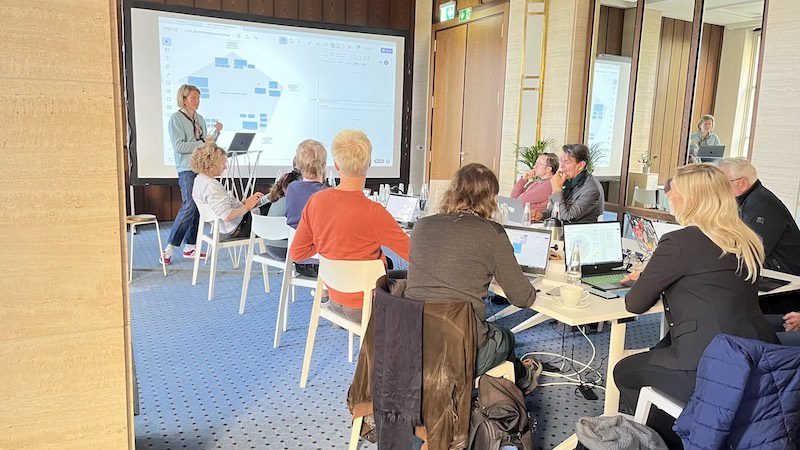
Digital-Zebra involves libraries that are looking to promote digital inclusion and participation in Berlin, with the aim of eventually providing contact points at 17 library venues where trained digital pilots can offer support.
After the workshops at CityLAB, we asked the people involved in these two measures about their experience and the status of implementation, as well as finding out from our workshop leaders and service designers Anja Lüttmann and Edmundo Galindo about the underlying process. They share their insights and findings here in three short interviews.
Anja and Edmundo, at which points of the process do you support the individual measures?
Anja Lüttmann: The action teams work independently, so we customize our offerings to suit each individual measure. As a support team, we generally offer methodological and technical support through workshops at the transitions between the GD:Bimplementation phases (including entry and exit workshops with preparation and follow-up), with regular check-in meetings being held during the ongoing phase. In addition, action teams are able to access to the GD:B methods handbook and individual methods training, along with advice from us as required.
We also provide resources for service design or prototyping sprints. These include user-centered recording of needs, implementation of structured user interviews and the creation of design studies and user testing. The aim of the prototyping sprints is to help develop functioning software prototypes. The prototypes bring individual functionalities to life and enable user tests to be carried out in real-life conditions.
Anja Lüttmann
What happens at the workshops?
Edmundo Galindo: Our first step is to conduct an initial meeting with those responsible for the measures so as to identify any gaps in project development. The basis for this is the check-in form that is filled out in advance. At this meeting, we determine the current status of project development and prepare an introductory workshop. At the workshop, we then work together with those responsible for the measures. We highlight the success factors and objectives that are essential to project development. Working with the people involved in the measure, we also analyze the goals for each phase and determine the next steps. On this basis, the measures are then able to define tasks and assign them to the relevant project participants.
In addition, we offer various methods during the workshop that focus on key aspects of the problem so as to be able to develop and formulate solutions. Based on the outcomes arrived at, the measures have the opportunity to develop, review and consolidate their work processes, topic areas or approaches to problem-solving. The teams can access other methods digitally, too. This enables them to develop and refine the necessary processes in a way that is specifically geared towards their own project development. The methods are described in the GD:B handbook and are accessible to everyone as an open data set. We publish new methods in regular cycles based on our practical experience.
Do the measures requesting support face similar obstacles, and if so, what are these?
Anja Lüttmann: Yes, that’s something we often see. One example of this is the exploration phase, where the aim is to find ways of involving various stakeholders in the project. At this stage, roles and responsibilities are often not yet clearly defined, and the measures want support in developing solution proposals.
Edmundo Galindo: Another common challenge is that of identifying and addressing suitable target groups in order to understand their needs, expectations and wishes in connection with the measure. This is where the ‘methods suitcase’ we developed comes into play: it offers the measures a clear guideline for executing work processes and steps in project development in a chronological and structured manner. It gives them a common thread in developing the project and enables them to organize the development of the project efficiently and smoothly.
Thank you, Anja and Edmundo! Now we’re all the more interested to hear how this support has gone down with the two action teams. Digital-Zebra project manager Jacob Svaneeng answered three questions for us.
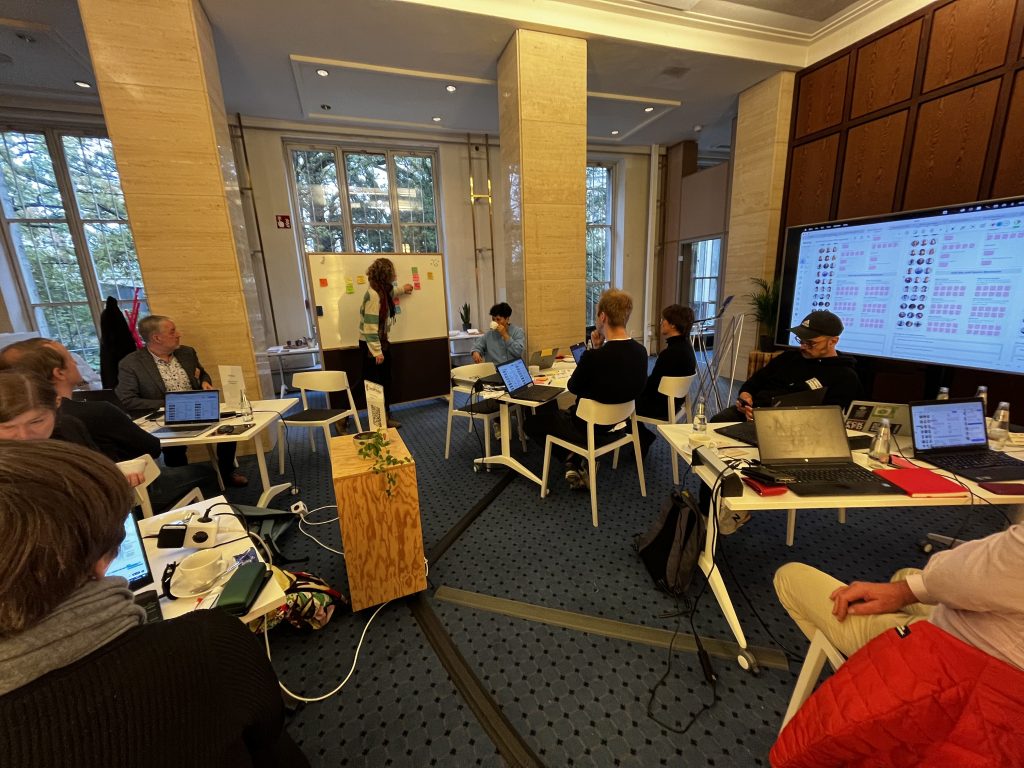
Wie hilfreich war der Workshop für Eurer Team?
Jacob Svaneeng: It was extremely helpful. Not only did we get to know new working methods, I was also very impressed by how well the process worked with people from different backgrounds, and on a hybrid basis, too. And for me as project manager, it’s a wonderful time-saving experience to be able to go home after a workshop of this nature and have the complete documentation ready, having elaborated the whole thing together at the workshop.
Are there any potential hurdles to the project that you might face in the near future?
Jacob Svaneeng: We’re implementing the measures in a federal context, so to speak. This is always a challenge, simply because there are an enormous number of stakeholders.
That’s why it’s so important to hold these types of workshop: they also help establish a collaborative culture and, as we have seen, they generate genuine enthusiasm. So the participants go back to their administration or institutions and take their enthusiasm away with them.
Jacob Svaneeng
What is the next major milestone for the project?
Jacob Svaneeng: For us, it will be getting all 17 library locations up and running by the end of the first quarter of 2024. Whether we achieve this milestone also depends on whether digital guides are recruited in all districts. This is the responsibility of each individual district too, of course. But once we’ve achieved this, so to speak, then the whole model phase will be in full swing and we’ll start to see some results.
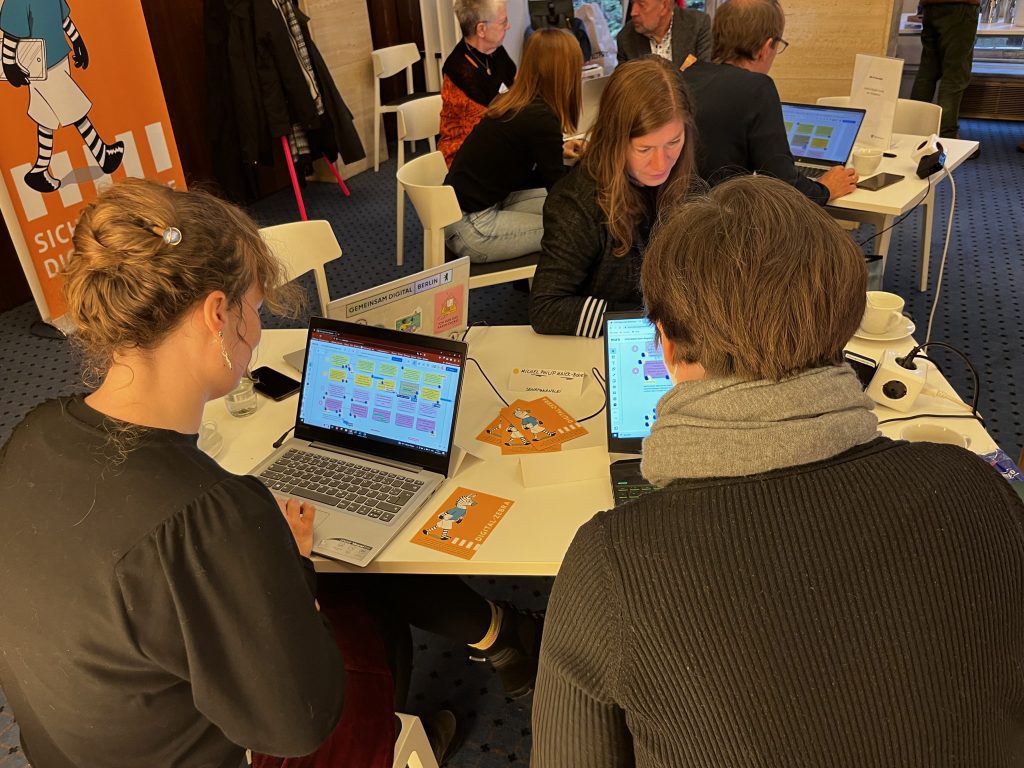
When it came to the project SMART SPACE Hardenbergplatz, we had the pleasure of meeting the project manager and managing director of Insel-Projekt Berlin, Rolf Mienkus.
How helpful was the workshop for your team?
Rolf Mienkus: The workshop has definitely made a difference in the sense that all project partners are now up to date – this is particularly crucial because the pilot projects are due to be evaluated soon. Here you have to draw a distinction between project evaluation and the evaluation under GD:B: the relevant objectives are different, although they are interlinked of course. Today’s workshop was very helpful in aligning these different levels.
Are there any potential hurdles to the project that you might face in the near future?
Rolf Mienkus: In terms of implementation, everything is going well and according to plan. Hurdles that arise here and there often have more to do with coordination processes, but we can overcome these given the necessary patience.
What is the next major milestone for the project?
Rolf Mienkus: The next milestone is the pre-test of our prototype in the third quarter of 2024, which we will ultimately run with users in 2025. Before this there’s another highlight: we will be doing a kind of role play to simulate the operating company that will ultimately be responsible for hosting the negotiation platform. We want to find out what resources the operator will need to have available in order to be able to manage something like a digital booking and negotiation platform for public spaces.
We’d like to thank everyone involved for the interview and we wish them ongoing success with implementation!
